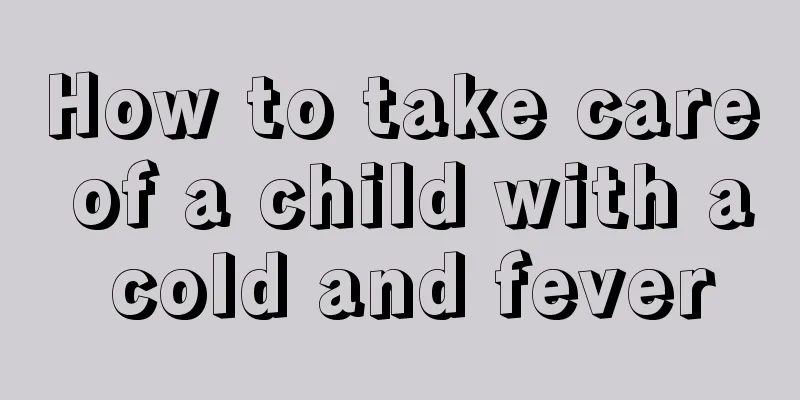Why does the newborn keep crying and not sleeping?

|
Newborns have many sleeping conditions because their physical development needs to be completed during sleep. Children have no consciousness to express themselves and can only do so through some simple body language to ensure their health. Let’s find out why newborns keep crying and not sleeping. In fact, crying is the only way for newborns to communicate with the outside world, unlike older children who usually cry because of illness or sadness. The meaning of a newborn baby's cry is much broader. The reasons why newborns cry can be divided into two main categories: (1) Pathological causes. When a baby cries, the first thing to do is to determine whether he is sick. If the child cries because of illness, you will easily find that he or she also has other symptoms and signs, such as: poor spirits showing drowsiness or irritability, not wanting to feed or even refusing to feed, no fever or fever, crying in pain or accompanied by screaming, difficulty breathing, vomiting or abdominal distension, etc. Secondly, check the overall condition to see if the navel is inflamed, whether there is diaper rash on the buttocks, whether there are small pustules on the body, whether there are abnormal movements of the limbs, etc. If any abnormal condition is found, you must go to the hospital for treatment without delay. If you always let your baby lie down and cry, it may cause hernia (umbilical hernia or inguinal hernia) due to excessive pressure on the abdomen. Many mothers still comfort their children by feeding, coaxing and patting, but this does not solve the problem. At this time, parents should open the diaper and check the side of the child's genitals. If it is severely swollen, it is very likely that the child has this disease. (2) Physiological reasons There are many reasons why healthy newborns cry, and the reasons can be divided into four categories: ① Improper feeding. Several situations should be considered, such as hunger, thirst, and overfullness. Asking for milk is the most common reason for babies crying. In addition to crying, they can also be seen looking for milk and sucking. Touch his mouth with your finger and the crying will stop immediately. After feeding for a while, the baby will fall asleep contentedly. Some mothers just pick up their babies and feed them as soon as they hear them crying. This approach is too simple. Because you should calculate how much time has passed since the last feeding. If it is less than an hour, the baby is generally not crying because of hunger. For bottle-fed children. You should think more about the possibility that the child is thirsty, and giving him some water will be very effective at this time. We all have the experience of feeling uncomfortable with a bloated stomach after eating too much, and the same is true for newborns. We have to believe that children know when they are full or hungry, and we cannot mechanically require children to drink a certain amount of milk in one meal according to calculations in books or recommendations from milk powder manufacturers. Force-feeding is a very painful experience for children. ② Inadequate care. Newborns do not have as strong vitality as newborn animals. When a calf or foal is born, after its mother licks the liquid off its body, it will immediately stand up and walk, and find the nipple to drink milk by itself. Human newborns, on the other hand, are delicate and must be carefully cared for; they will cry to express their protest at the slightest discomfort. The room temperature, the thickness of the wrapping, the light intensity, the noisy environment, the diaper not changed in time after it is wet, the child is sleepy and wants to sleep, or even just wants you to hug him or her are all reasons for crying. The mother should understand the child's crying and analyze the reasons for his crying. Generally, a attentive mother can master it well in about two weeks. The above are the reasons why newborns keep crying and refusing to sleep. This situation happens from time to time and most children will experience this situation. It may be that the child is not adapted to the external environment, so we should try our best to create an environment for the child where they feel safe. Let them sleep more peacefully. |
<<: What to do if the baby does not sleep during the day or at night
>>: What is the correct way to care for a newborn baby?
Recommend
What causes late teething in children?
After the baby is born, as the baby grows older, ...
What are the symptoms of protein allergy in babies?
When the body is allergic, there will definitely ...
What should I do if my baby's head sweats?
With the continuous birth of new babies, parents ...
Why does a five-month-old baby cry at night?
Many parents go to work with dark circles under t...
Can kyphosis in children be treated?
Now it is emphasized that parents should give the...
What is the best way to give eye drops to babies?
Many mothers have worries of one kind or another ...
Are febrile convulsions likely to produce sequelae?
Children's body resistance is relatively low,...
Symptoms and gait of hypertonia in children
When it comes to the medical condition of "h...
Why do children feel nauseous and retching?
Why do children feel nauseous and retching? Nause...
What to do if baby eczema recurs
We all know that every child is particularly pron...
When does the baby's foot arch form?
The birth of every baby is a gift from God to us....
The dangers of breast hyperplasia in boys
In daily life, not only women suffer from breast ...
Solution to mycoplasma infection in three-year-old babies
Most of my friends have babies. It seems so hard ...
How to treat simple pityriasis in children
Everyone is familiar with the skin disease pityri...
Why is the stool thick in newborns?
New parents always lack certain experience in tak...









